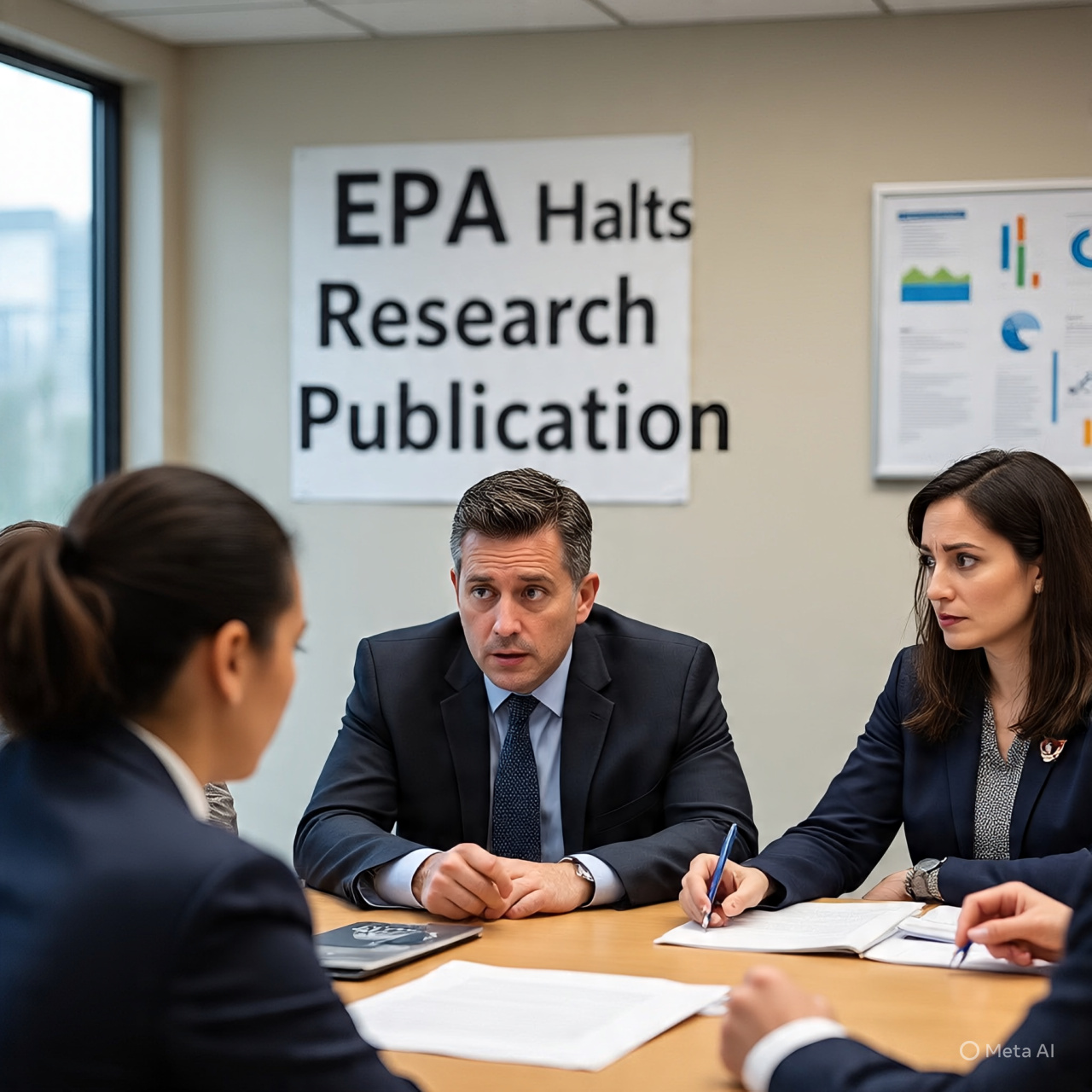
In an unusual directive that has raised concern across the scientific community, the United States Environmental Protection Agency (EPA) has instructed scientists at its Office of Water to pause nearly all efforts to publish research. According to a report in The Washington Post, the order was communicated at a town hall meeting last week, leaving researchers uncertain about the future of their work and its potential impact on public health policy.
The Office of Water plays a crucial role in ensuring the safety of America’s drinking water and maintaining the health of coastal and aquatic ecosystems. Its research feeds into national policies governing clean water standards, wastewater treatment, and the protection of natural water resources. By restricting publication, critics argue, the EPA risks slowing down both scientific progress and public access to information that is essential for environmental safety.
The reported directive requires that, unless a scientific journal has already returned proofs of acceptance, ongoing research papers will face an additional, unspecified review process. While details of this new procedure remain unclear, two EPA employees cited anonymously told The Washington Post that the order came from political appointees rather than career scientists.
This development reflects a growing tension between political oversight and scientific independence in U.S. federal agencies. The EPA, created in 1970, has historically been a science-driven body tasked with protecting human health and the environment. However, political interventions have surfaced at various points in its history. For instance, during the Reagan administration, budget cuts and policy decisions led to controversies over the suppression of scientific findings. More recently, in the Trump era, scientists raised alarms over attempts to downplay climate change research and restrict environmental data.
The Office of Water’s work is particularly sensitive because of its direct implications for public health. The United States Geological Survey has estimated that nearly 43 million Americans rely on private wells, which are not federally regulated and depend heavily on research-backed guidelines for safety. In urban settings, EPA standards for lead, arsenic, and other contaminants directly affect municipal water systems that serve more than 286 million people. In such a landscape, withholding or delaying the publication of research could hinder timely policy interventions.
Supporters of the new review policy argue that government-funded research must align with broader policy priorities and undergo rigorous scrutiny before publication. They contend that additional layers of review could ensure consistency and prevent premature conclusions that might cause public alarm. Yet, opponents warn that political motivations rather than scientific merit could dominate the process. The concern is that research findings unfavorable to industrial or political interests may be indefinitely stalled.
Globally, transparency in environmental science has become a critical issue. In the wake of water crises such as Flint, Michigan—where delayed acknowledgment of lead contamination caused severe public health damage—there is heightened awareness of the dangers posed by suppressing scientific findings. The Flint case, which affected over 100,000 residents and exposed thousands of children to elevated lead levels, stands as a stark reminder of the human cost of bureaucratic or political interference.
As of now, EPA officials have not provided details about the new review mechanism or its intended duration. Until clarified, the directive has created uncertainty for researchers and advocates alike. The halt not only affects scientific careers and projects but also carries long-term consequences for environmental governance in the United States.





















